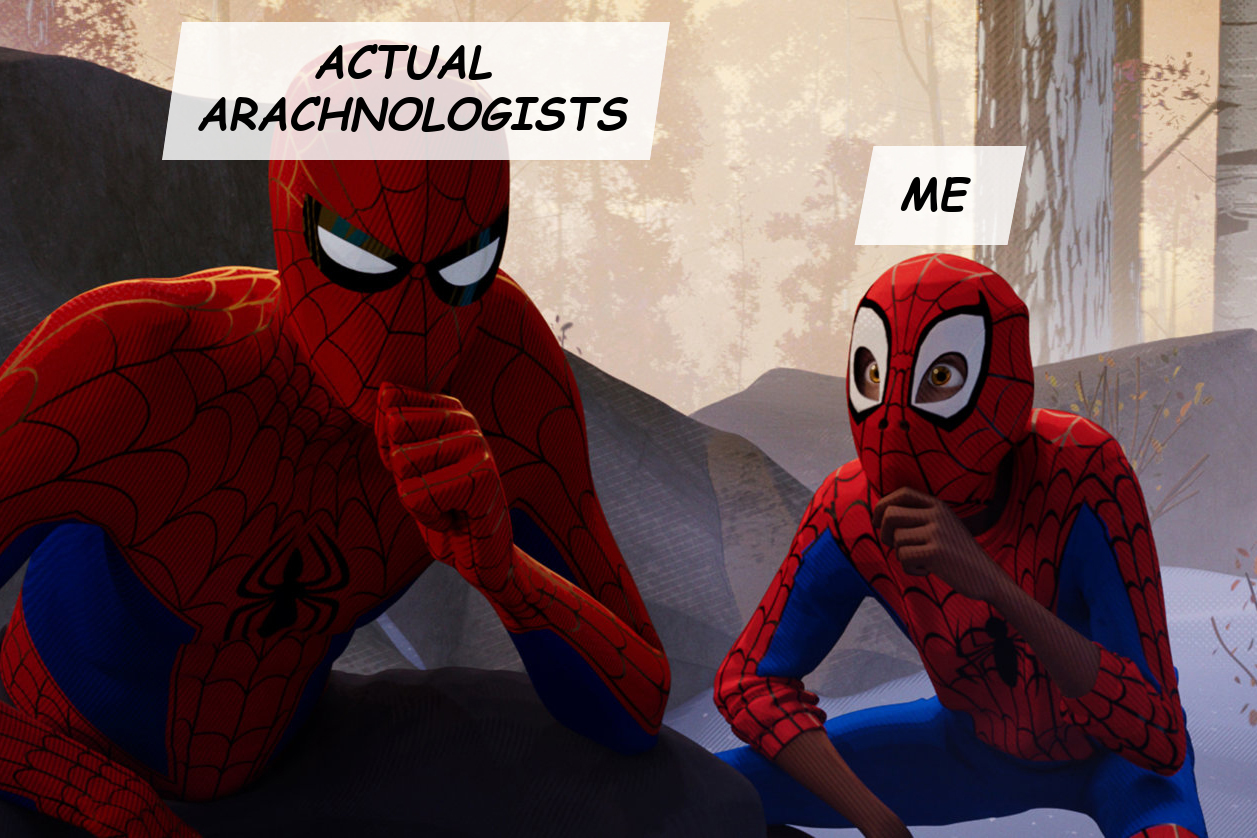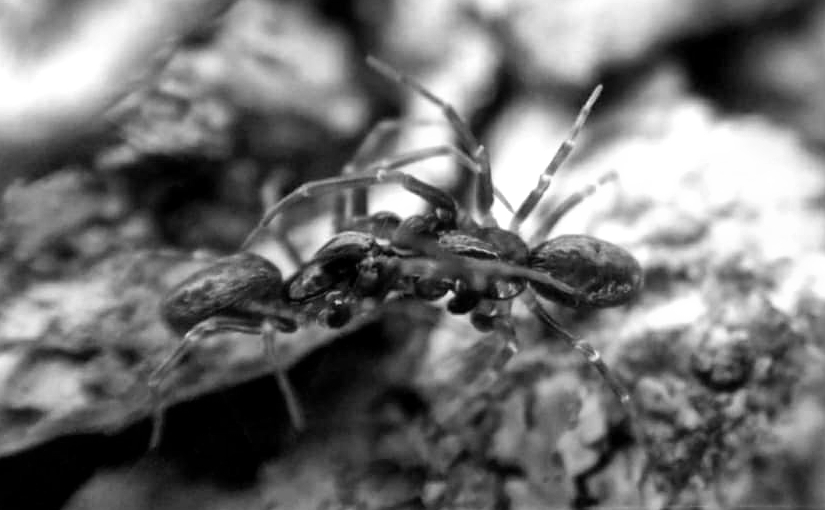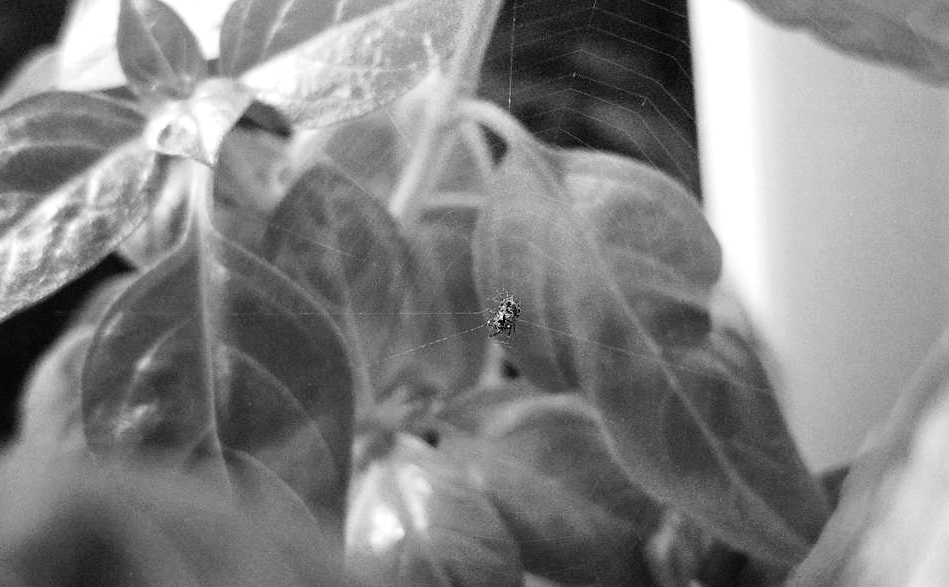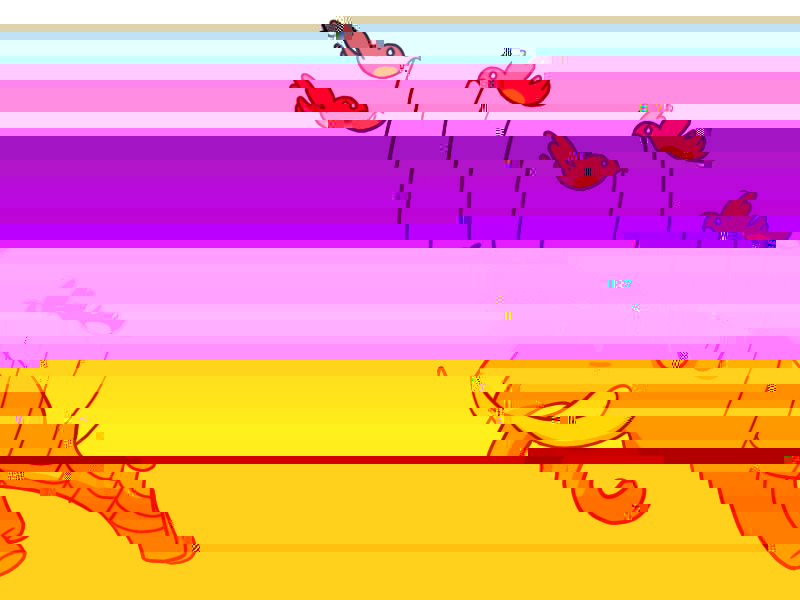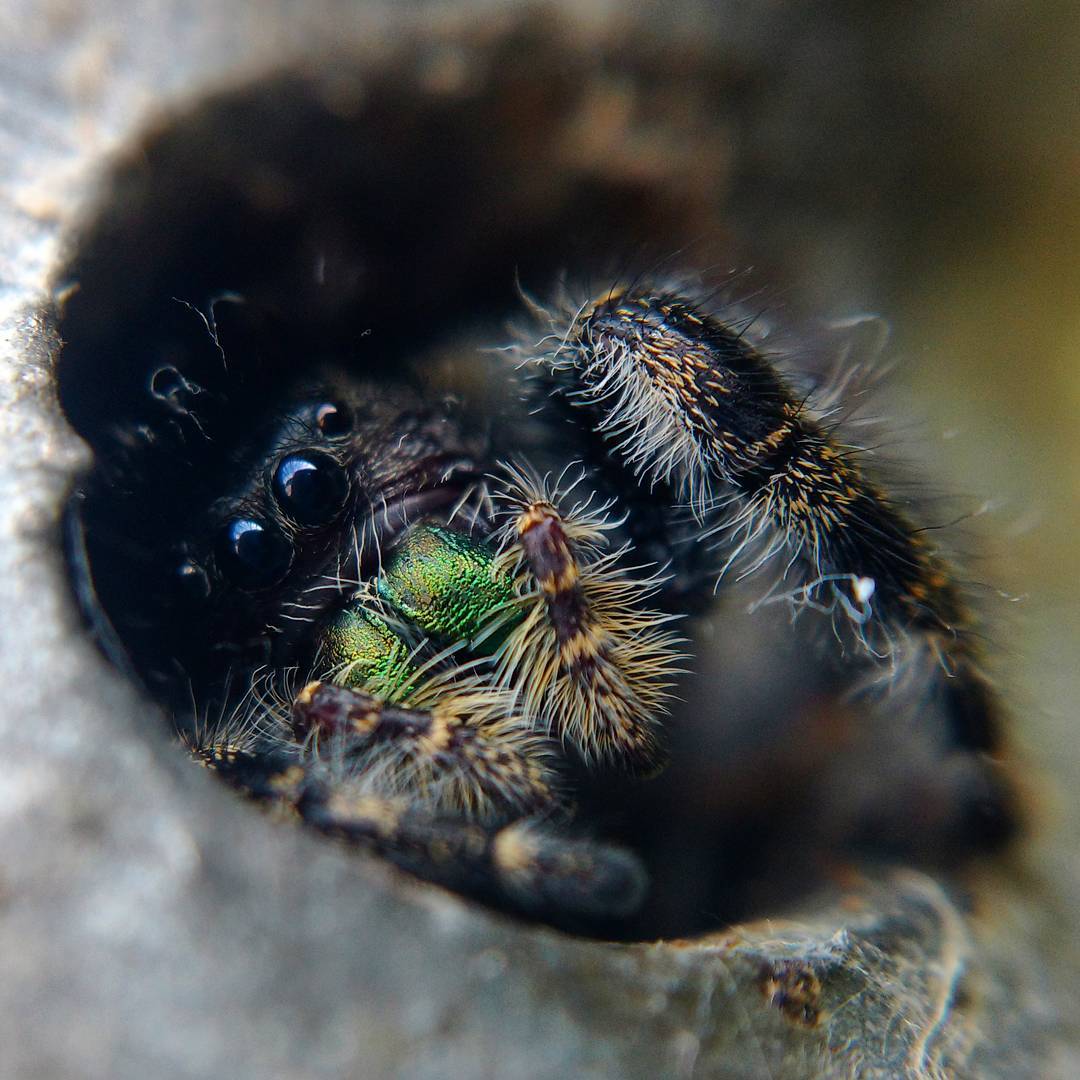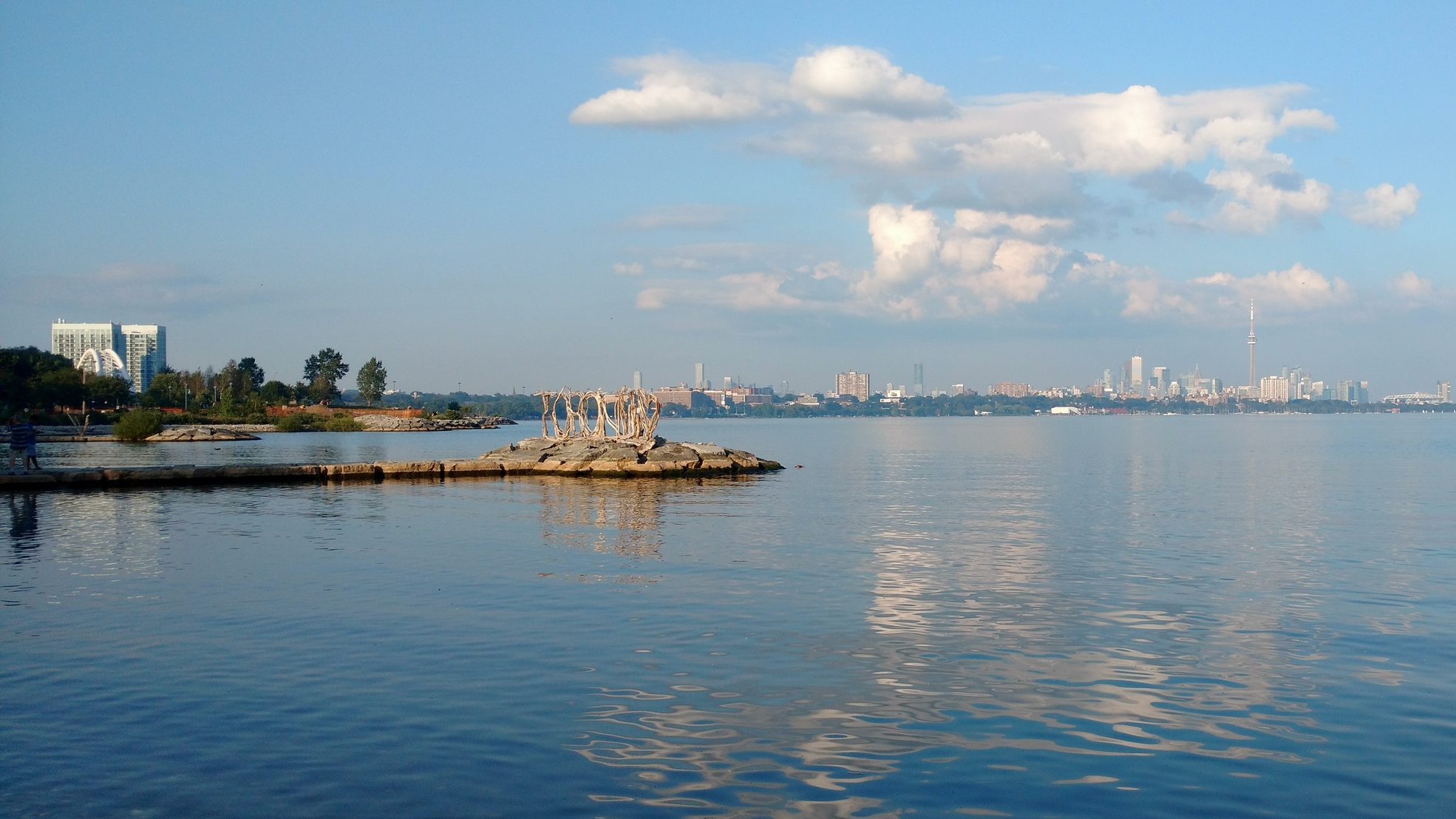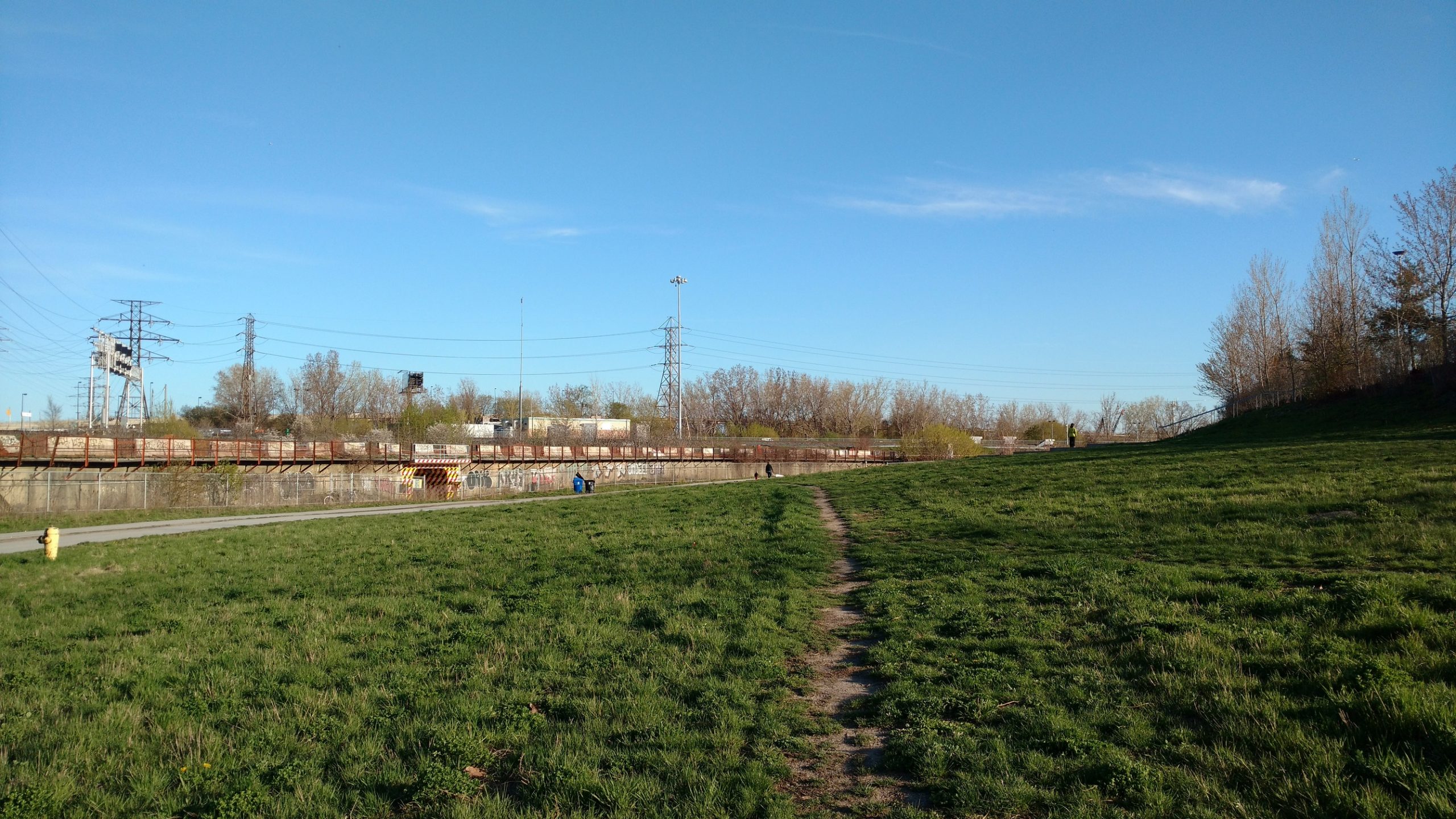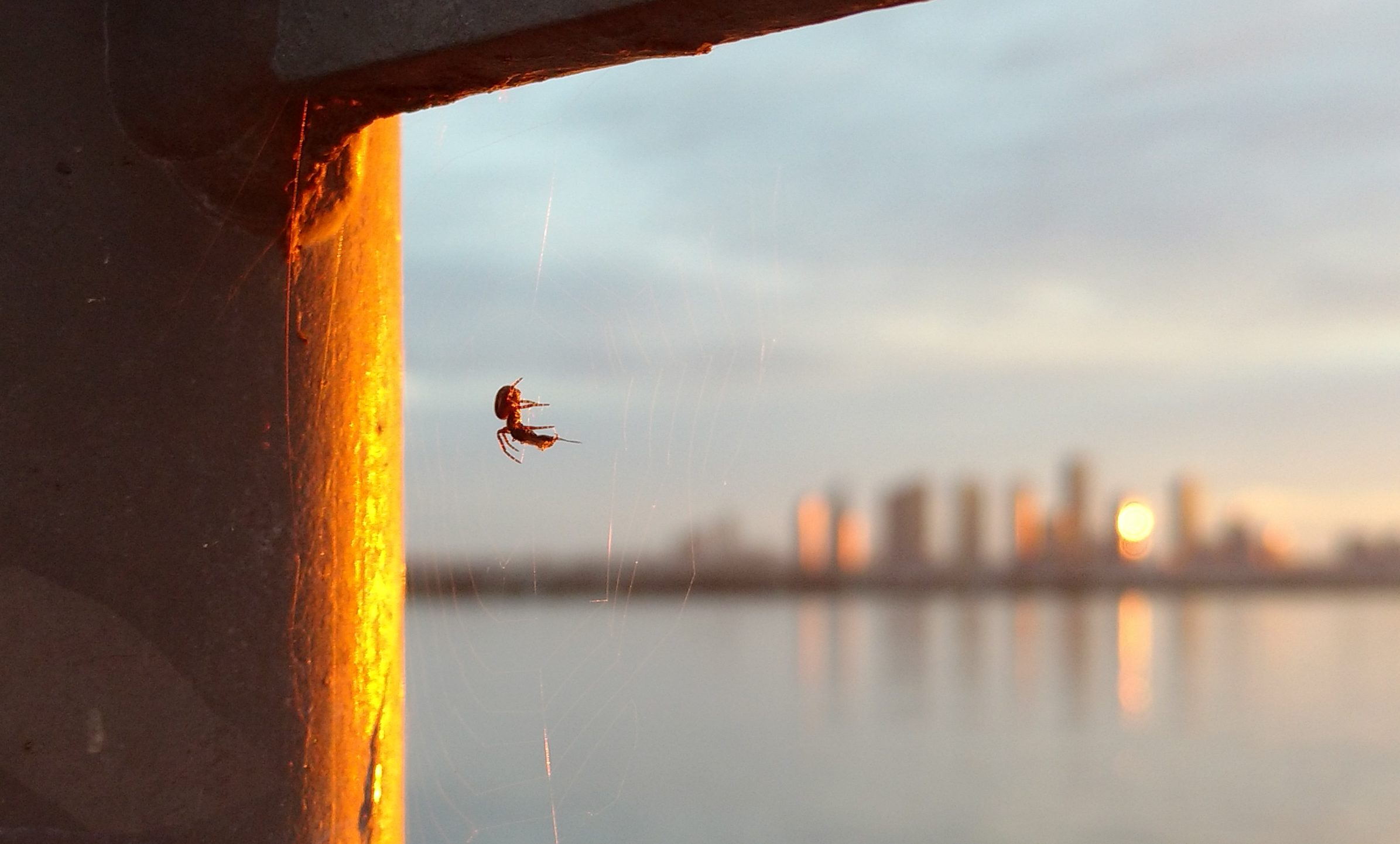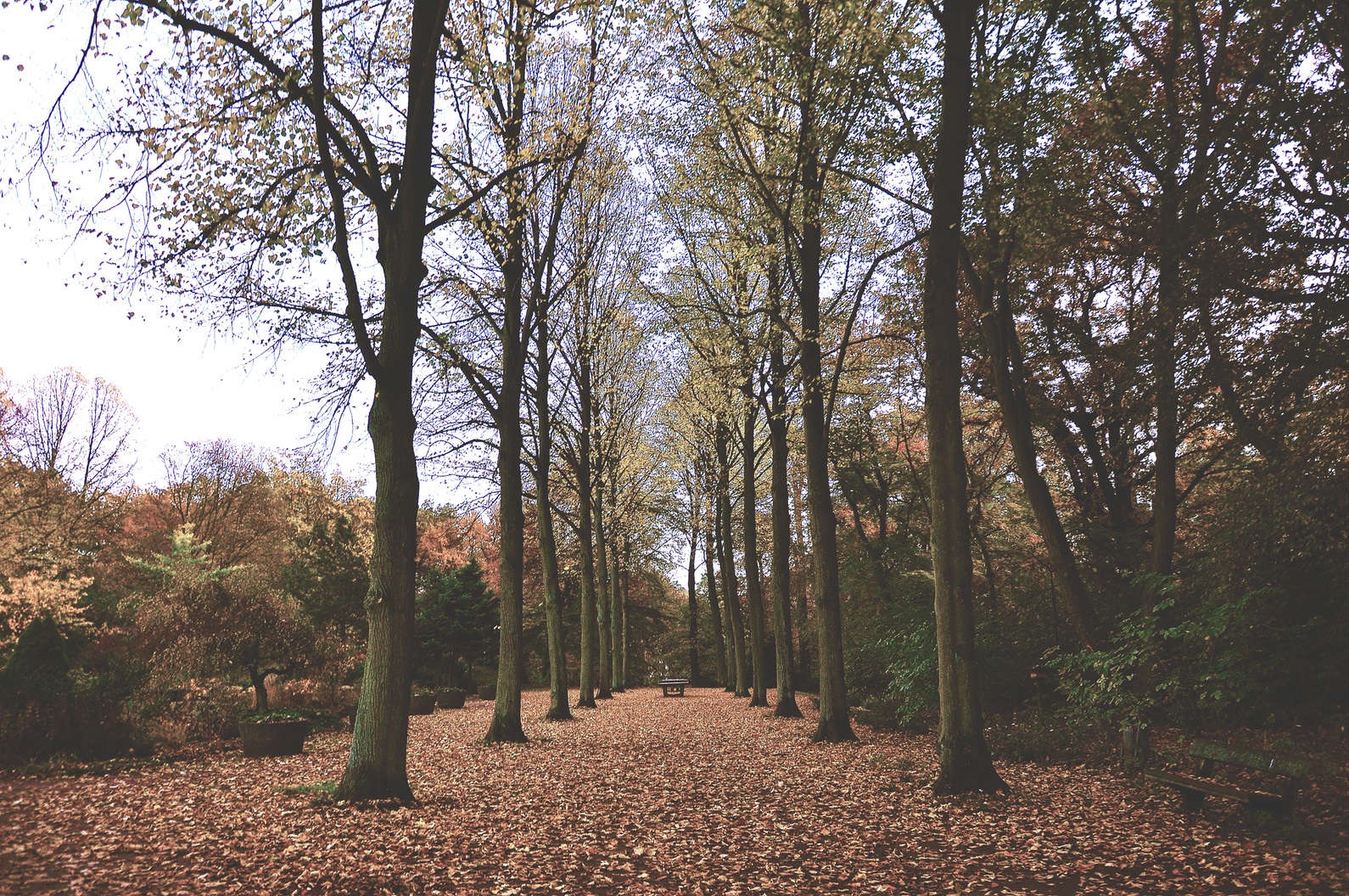Well, I’ve reached the point where people send me spider-related news articles, unprompted. So here’s a roundup of the interesting spider-related news and research that’s come my way this month.
Category: nature
Nightmare Rectangle Round-up: Municipal Finance, Black Widows, Migrants, and More
Header: This image from Lisa Jackson’s Biidaaban depicts a decaying Toronto City Hall surrounded by forest, on the edge of a flooded Nathan Phillips Square.
Trying a bit of a new thing. I occasionally do linkdumps via Twitter threads, but I felt like doing something more permanent. Title inspired by this ever-relevant @TechnicallyRon tweet:
2007: It's called a smart phone, it can do everything!
2017: Stare into the nightmare rectangle and watch society collapse in real time— TechnicallyRon (@TechnicallyRon) September 11, 2017
Continue reading Nightmare Rectangle Round-up: Municipal Finance, Black Widows, Migrants, and More
Dictynidae Drama
If you’re lucky and you know what to look for, you can watch mini wildlife documentaries unfolding in front of you. Back in late May I was lucky to witness mesh-web weavers courting and mating; I’m writing it up (including photos and video) because I couldn’t easily find anything else online about this intriguing behaviour.
Winter Spider Diary
So last November, I found dozens of tiny baby orbweavers in my bathroom. They were probably the offspring of the big grey cross spider who lived just outside the window, feeding on insects attracted to the building lights.
It was bad timing. Grey cross spiders do most of their courting and mating in the fall. The spiders guard their egg sacs into the winter, until they die. In spring, the babies emerge and go their separate ways. Most will die soon after; a lucky few will survive to continue the cycle. I don’t know why this batch hatched.
I painstakingly evicted at least a dozen, but the next day they were back. I decided to let nature take its course. Over the next few weeks, they gradually disappeared, to starvation or cannibalism or other insect predators. Then, one day, I saw one I’d missed. She had woven the tiniest of webs in the basil plant on the kitchen windowsill. All her siblings had died, but somehow she had made her way to this small oasis.
It was one thing to let the spiders starve to death when they were just black specks on the bathroom ceiling, but I felt a vague sense of responsibility to this lone survivor, and decided to keep her alive as long as I could.
Social media resolutions for 2018
More creating, less commenting.
’Nuff said.
Ranting about racism in the media or whatever outrageous thing an outrageous person said is exhausting and it doesn’t change anything and I’d rather just take a nap or whatever. I need to make the stuff I want to see.
More Mastodon, less Twitter.
2007: It's called a smart phone, it can do everything!
2017: Stare into the nightmare rectangle and watch society collapse in real time— TechnicallyRon (@TechnicallyRon) September 11, 2017
This is partly because Twitter has become a deluge of terrible news at a scale beyond the human mind’s ability to process healthily, and also on principle. Proprietary platforms funded by ads and venture capital don’t make for good communities. I’ve put my money where my mouth is and joined social.coop, a co-operatively run Mastodon instance. No ads. No algorithms. No Nazis.
This means my coverage will change—less livetweeting, more aimed at people beyond Toronto. What would a German hacker or an Appalachian activist or a Filipin@ K-pop fan want to know about what’s going on at Toronto City Hall? Why should they care?
More iNaturalist and BugGuide, less Instagram.
I’ve been using Instagram for my spider photos, but have been neglecting to upload my photos to iNaturalist and BugGuide. I love the stuff I see on Instagram, but all the ads and the lack of chronological order is extremely annoying. So I’d like to shift my focus and try contributing to different communities.
More PayPal, less Patreon.
In the wake of Patreon’s unpopular and quickly walked-back fee changes, I think a lot of us users recognized the precariousness of depending on a platform we can’t control and whose goals do not necessarily align with ours. I’d like to cut out one of the middlemen and encourage patrons to switch to going directly through PayPal, which also allows for automatic monthly donations.
A platform like Liberapay is more in line with my needs. Right now it’s at a stage where I’d be comfortable asking people to switch to it, but I will be keeping an eye on its development, and on similar open-source platforms.
Less Facebook.
I’m just going to stop trying to “engage” on Facebook. Aside from the ethical and privacy considerations, it’s just plain hard to use. None of my devices have more than 2 GB of RAM! I can’t handle all that! Also, I hate finding out about my neighbours’ terrible opinions.
Adapted from this toot.
Spiders of Toronto: #2017bestnine
So there’s a thing going around Instagram where you post a collage of your top nine photos from 2017, ranked by likes. Here’s mine:

Maybe not surprisingly, there wasn’t much overlap with what I considered my best photos! I couldn’t quite narrow them down to nine, but here they are, in chronological order. Continue reading Spiders of Toronto: #2017bestnine
Spiders of the Western Waterfront
If you follow my Instagram you’ll see that I spend most of my spider-watching time on the western waterfront. There’s an abundance of diverse spider habitats all along the Martin Goodman Trail, but there are several parks that are worth dedicated visits. Here’s a tour…
Spider Excursion: Corktown Common
So last month, as part of my goal to find spiders in more locations around the city, I took myself on an outing to Corktown Common. The land, once belonging to a hog slaughterhouse (hey, Toronto’s called “Hogtown” for a reason), was reclaimed and redeveloped as part of the West Don Lands revitalization. Continue reading Spider Excursion: Corktown Common
Spring/Summer 2017 Spider Goals
(Because writing about politics only fills me with rage and despair.) Continue reading Spring/Summer 2017 Spider Goals
Hot Take: Private parks set a perilous precedent
Look. I love nature and public space and all, but parks funded by private donors set a very bad precedent.
First, it reinforces the idea that parks are “extra”, not something that the City itself should invest in. It makes the creation of new parks (and the resources allotted to them) dependent on the whims of wealthy donors and not solid urban planning principles. It’s unpleasantly reminiscent of local improvement charges, i. e. rich homeowners paying to spruce up their own neighbourhood.
I’m afraid this will continue to marginalize places that aren’t tourist hotspots, scenic landscapes, or up-and-coming neighbourhoods. Not every park can be as exciting as the Don Valley or Rail Deck Park or whatever they’re calling Under Gardiner. Not every park has to be. Parks shouldn’t just be attractions people visit on special occasions, like the zoo. They should also be a part of everyday life.
Green space is an urban amenity as essential as libraries and clean water. Aside from parks’ importance for health and the environment, they are valuable in their own right as public space. They’re places where you can loiter, sleep, relax, exercise, cool down, picnic, socialize, drink covertly, collect beer cans…all without having to buy anything. For many city dwellers, parks are our backyards.
Public-services-as-philanthropy leaves less glamorous needs by the wayside. Currently playground equipment is only replaced every 30 years (up from 60). Not to mention other things than parks, as Danny Brown notes on Twitter. No one is donating to reduce the TTC or TCHC SOGR backlog.
The whole thing is part of a larger trend towards valuing public services only insofar as they make money. Financial worth may seem more tangible, but it is not the only kind of worth. There are many things—public transit, parks, and more—whose value can’t be measured in dollars. They should not have to turn a profit. People freaking love parks and libraries. It should be possible to fund them sustainably, by increasing the City’s main source of revenue—property taxes—instead of relying on occasional windfalls.
In this pared-down vision of city government, services that cannot pay for themselves must be shuffled off to beneficient private donors, corporations, charities, or non-profits. It’s not because these things would be better off in someone else’s hands. It’s just an attempt to make it Someone Else’s Problem. “Screw you, I got mine.”
It’s a small, mean, insular way of thinking and I hate it. Enough said.
Refined from Twitter. Thanks to Ed Keenan for the shout-out!
